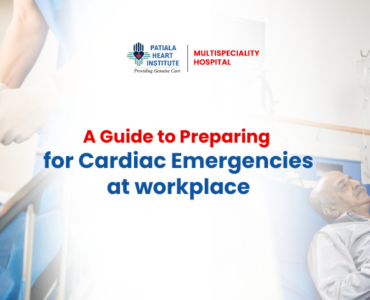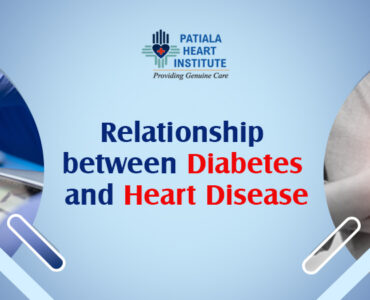Coronary bypass surgery helps to redirect blood around a blocked or partially blocked artery in your heart. The procedure involves taking a healthy blood vessel from your leg, arm, or chest and connecting it below and above the blocked arteries in your heart.
Why is Heart Bypass Surgery Done?
CABG surgery might be necessary to treat narrowing or blockage of one or more coronary arteries. Some of the symptoms of coronary artery diseases that you may notice:
- Pain in Chest
- Severe Tiredness or Fatigue
- Indigestion
- Palpitations
- Shortness of Breath
- Swelling of hands and feet
- Abnormal Heart Rhythms
Unfortunately, you may not experience these symptoms in the early stage of coronary artery disease. But it will continue progressing until there is enough blockage in the arteries to cause problems and also the symptoms. If the blood supply continues to decrease due to the arteries blockage, you may have a heart attack.
Types of CABG
When we talk about the types of CABG, they are of two types:
- On-pump Bypass Surgery
- Off-pump Bypass Surgery
On-pump Surgery
The vast majority of coronary heart surgeries are done through a long chest incision while a heart-lung machine keeps blood and oxygen flowing. This is called on-pump coronary bypass surgery of the heart.
During surgery, the surgeon cuts through the breastbone and opens the rib cage to expose the heart. As soon as the chest is opened, medication is administered to temporarily stop the heart, and a heart-lung machine sets in to circulate blood throughout the body.
Off-Pump Surgery
An off-pump surgery does not involve stopping the heart or using a heart-lung machine to replace it. The surgeon operates directly on the patient’s beating heart using special equipment to stabilize the area of the heart the surgeon is working on. As a result, it reduces the risk of perioperative bleeding and strokes associated with on-pump surgery.
But selecting an on-pump or off-pump procedure partly depends on the patient’s health.
The Procedure
The coronary artery bypass graft procedure involves taking a blood vessel from another body part, like the legs, arm, or chest, and attaching them to the coronary artery above and below the clogged areas.The new blood vessel that is used is called a graft.
The number of grafts the patient requires will depend on how severe the coronary heart disease is and how many blood vessels are narrowed or blocked.
This whole procedure is done under general anesthetic, and it usually takes between 3 to 6 hours to complete this surgical procedure.
Recovery After Heart Bypass Surgery
Recovery time varies from patient to patient. After the surgery, you are required to stay in the hospital for about 6 to 8 days. In addition, follow-up visits are required, typically from 6 to 8 weeks after your successful surgery.
You can sit on a chair after one day, walk after three days, and take stairs up and down after 5 or 6 days. You can return to normal activities like driving, working, and having sex after six weeks.
Most people recover completely in 12 weeks.
Alternatives To Heart Bypass Surgery
The best alternative to heart bypass surgery or CABG is Coronary Angioplasty.
In this surgery, a long, hollow, flexible plastic tube called a Catheter is inserted into a blood vessel in your arm or groin. Then X-ray helps the tip of the catheter be guided to the blood-supplying arteries towards the narrowing arteries. After that, a balloon attached to the catheter is inflated to widen the artery, and a small metal tube called a stent is usually used to keep the artery open.
It takes less time to recover from coronary angioplasty. Patients with multiple artery blockages, narrowed arteries, or abnormal structures near their hearts may not be recommended for this procedure.
Our Takeaway
You can feel better and have no symptoms for as long as 10 to 15 years after this surgery. But, of course, these results and outcomes will depend on the medications and how well you take care of yourself post-surgery.
Patiala Heart Institute is the best hospital in Patiala. We have an expert team of the best cardiologists in the region who can take good care of your heart health.
Want to know more?
Feel free to book an appointment with us.
Frequently Asked Question
Is heart bypass a serious surgery?
Yes, heart bypass surgery is a critical surgery used to treat people who have coronary artery disease. During the surgery, the surgeon will remove a section of one of your blood vessels and use it to create a new route for blood to flow around the blocked or narrowed area in your heart. This new route will help improve blood and oxygen flow to your heart.
What is the life expectancy after heart bypass surgery?
There is no definite answer to this question as it depends on several factors, including the patient's age and health history. Generally speaking, patients who have undergone heart bypass surgery can expect to live for an additional 10-15 years. However, this number may vary depending on the individual case.
What is the success rate of bypass surgery in India?
The success rate of bypass surgery in India ranges from 60% to 85%. However, the quality of care can vary widely from hospital to hospital. Therefore, make sure you do your research and choose a reputable hospital before undergoing bypass surgery.
How long does it take to recover from heart bypass surgery?
It typically takes four to six weeks for patients to recover from heart bypass surgery. However, this is only an average; some patients may take a little longer while others may recover more quickly. Therefore, following your surgeon's instructions and advice regarding postoperative care is essential to ensure a smooth and speedy recovery.






